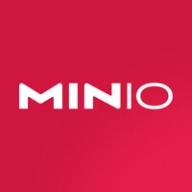


MinIO and Nutanix Unified Storage compete in the data storage solutions category. MinIO has an advantage in affordability and flexibility, while Nutanix is favored for its robust feature set.
Features: MinIO offers high-performance, Kubernetes-native architecture, and open-source object storage with excellent coding bit rot protection and workload distribution. Nutanix Unified Storage provides a unified platform with block, file, and object storage, enhanced by features like file analytics and data lens for managing unstructured data efficiently.
Room for Improvement: MinIO could enhance its customer support and offer deeper integrations with other platforms. Improvements in security features and easier management tools would be beneficial for enterprises. Nutanix could focus on reducing complexity in its license model and further optimizing integration processes to make scaling and deployment more flexible.
Ease of Deployment and Customer Service: Nutanix Unified Storage offers smooth integration into Nutanix environments with strong support, suitable for large organizations. MinIO allows rapid deployment across various environments but could enhance its support services for more comprehensive customer assistance.
Pricing and ROI: MinIO is known for low initial setup costs, ideal for businesses seeking rapid ROI and cost-effectiveness due to its open-source nature. Nutanix, while more expensive initially, promises higher long-term ROI with extensive features and better scalability.
| Product | Market Share (%) |
|---|---|
| Nutanix Unified Storage (NUS) | 2.9% |
| MinIO | 15.2% |
| Pure Storage FlashBlade | 5.6% |
| Other | 76.30000000000001% |



| Company Size | Count |
|---|---|
| Small Business | 11 |
| Midsize Enterprise | 11 |
| Large Enterprise | 21 |
| Company Size | Count |
|---|---|
| Small Business | 11 |
| Midsize Enterprise | 4 |
| Large Enterprise | 9 |
| Company Size | Count |
|---|---|
| Small Business | 27 |
| Midsize Enterprise | 30 |
| Large Enterprise | 66 |
FlashBlade is the industry’s most advanced scale-out storage for unstructured data, powered by a modern, massively parallel architecture to consolidate complex data silos (like backup appliances and data lakes) and accelerate tomorrow’s discoveries and insights.
MinIO is an open-source object storage system. It is designed to efficiently store and retrieve unstructured data, such as photos, videos, and backups. MinIO can be used as a standalone object storage server or as part of a larger system, such as a data lake or a private cloud, and can be deployed on-premise, in the cloud, or in a hybrid environment, making it a flexible storage solution for a variety of use cases.
MinIO’s features include erasure coding, bitrot protection, and checksum validation, which help ensure data integrity and reliability. The solution’s multi-tenancy support makes it ideal for multi-user environments. MinIO’s edge computing tools enable data storage and processing closer to users' locations, reducing latency and improving performance. MinIO can easily scale to accommodate storage and power demands, making it ideal for use in large-scale, data-intensive environments.
MinIO Benefits and Features:
MinIO offers several key benefits and features for organizations looking for a scalable and high-performing object storage solution:
Reviews from Real Users
MinIO stands out among its competitors for a number of reasons. Several major ones are its flexibility, integration options, and performance.
Süleyman Fazıl Y., a senior software engineer at a tech services company, writes, “The most valuable features are that MinIO is open, it works on-premise, and is compatible with the Amazon industry which is great for finding compatible libraries in many languages which is very good for developers.”
Rebecca S., CTO at NIASE, says, “MinIO is much improved over the prior solution, updates are simple to apply, and we anticipate that future capacity requirements will be easier to meet. Our customers are using this solution to retrieve tens of thousands of objects (documents and files) per hour, and MinIO seems to be able to keep up with it.”
Nutanix Unified Storage offers seamless scalability and high availability with a user-friendly interface, supporting multi-protocol operations while integrating effortlessly with cloud platforms. It enhances performance and security with features like ransomware protection and advanced data management.
Nutanix Unified Storage streamlines storage management by consolidating infrastructure and optimizing virtualization. It reduces operational complexity and enhances performance across diverse workloads. Despite feedback on integration challenges and suggestions for improving pricing, API capabilities, and security, it remains a key choice for dependable storage solutions. Calls for streamlined implementation and enhanced AI capabilities reflect its potential to better support evolving organizational strategies, driving cost efficiency and data accessibility.
What are the key features of Nutanix Unified Storage?In industries, Nutanix Unified Storage is deployed to centralize storage needs, improve database efficiency, and enhance file sharing and security. Organizations use it to consolidate infrastructure, support virtualization, optimize costs, and facilitate virtual machine hosting. It's instrumental in scalable object storage, ransomware protection, integrating legacy systems, and catering to critical applications.
We monitor all File and Object Storage reviews to prevent fraudulent reviews and keep review quality high. We do not post reviews by company employees or direct competitors. We validate each review for authenticity via cross-reference with LinkedIn, and personal follow-up with the reviewer when necessary.